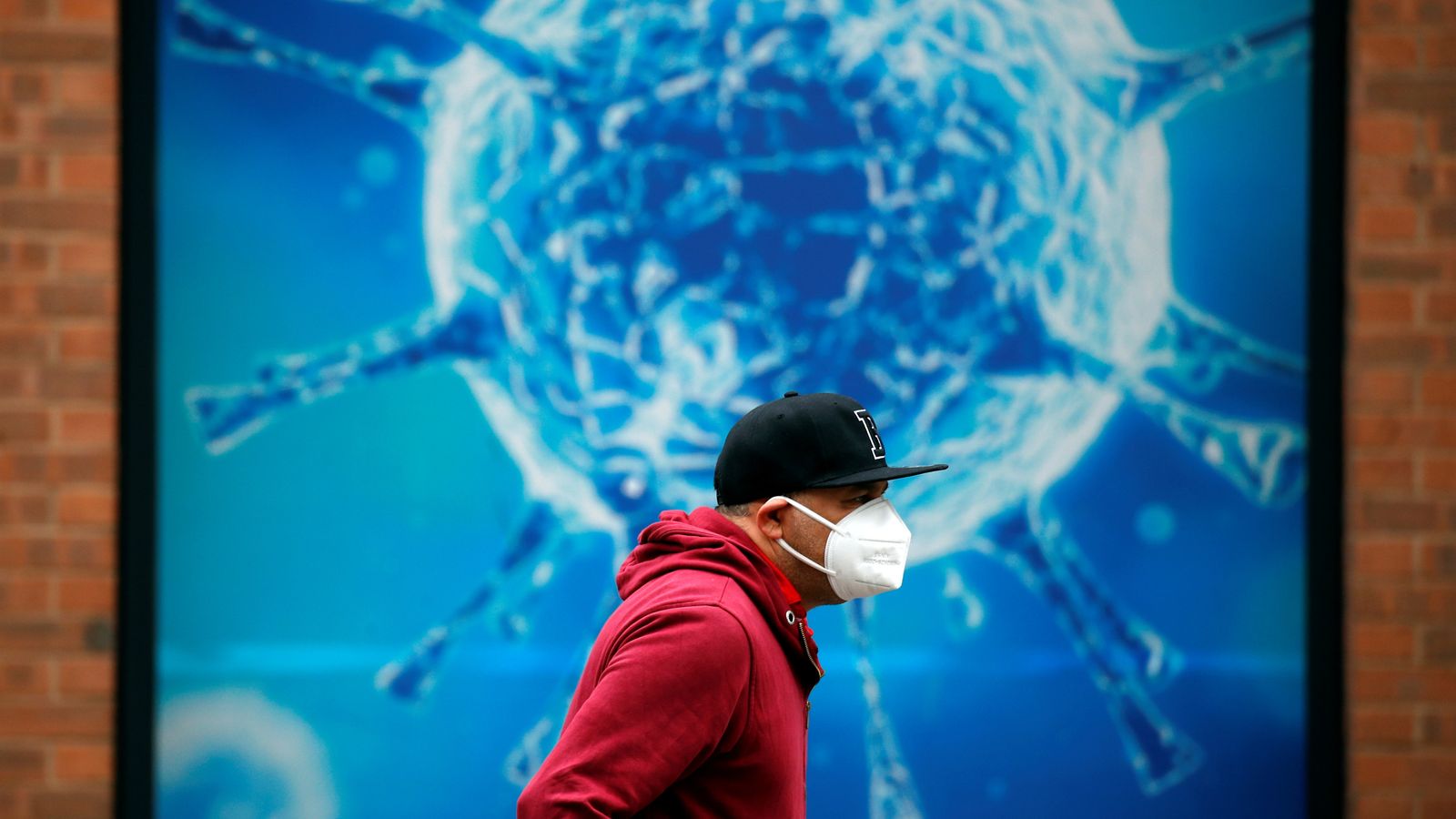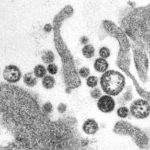New variants of COVID-19 are “very unlikely to send us back to square one” as coronavirus restrictions are lifted in the UK in the run-up to summer, a top scientist has said.
Professor Sharon Peacock, who is in charge of tracking strains of the virus in Britain, said the country is well equipped to “stay ahead” by adapting vaccines quickly.
The head of the COVID-19 Genomics UK scientific body told The Times she was “very optimistic” that immunisation would allow Britain to ease restrictions as planned.
Schools in England will reopen to all pupils on Monday in the first stage of the lockdown lifting, with most restrictions set to be gone by June 21.
Follow live COVID-19 updates from the UK and around the world
Prof Peacock told the Times: “I’m very optimistic that the vaccines will be rolled out, that they’ll be effective, and that we’ll be in a better place by the summer and autumn.
“I think we’ve got the capabilities to stay ahead by adapting vaccines, and so I’m an optimist.”
New variants are “very unlikely to send us back to square one”, she added.
Her comments came as the mystery sixth case of the Manaus variant of coronavirus was tracked down and identified to Croydon in south London.
Officials had been hunting for the unknown individual after cases of the variant of concern were detected in the UK.
Six cases of the P1 variant, first identified in the Brazilian city of Manaus, have been found – three in Scotland and three in England.
Health Secretary Matt Hancock said the “dogged determination” of testing and tracing teams had found the sixth person, who had been staying at home after returning from Brazil.
There was “no evidence of onward transmission” and more testing is being done in Croydon as a precaution “to minimise the possibility of spread”, he added.
There is evidence to suggest the Manaus mutation, along with the South African variant, may be able to more easily evade the vaccines currently being rolled out in Britain.
Prof Peacock said cases of the South African variant were not “taking off” in the same way as the Kent variant did – which prompted the latest lockdown – but “there’s no reason for being complacent”.
A total of 295 cases of the South African variant have been detected in the UK, up to 3 March.
More than one million people in the UK have now received both doses of a COVID-19 vaccine, while almost 21.4 million people have had one dose.
Mr Hancock told a Downing Street news conference on Friday the “unbreakable link” between COVID-19 cases, hospitalisations and deaths is being broken by the vaccination programme.
The health secretary said the average daily number of COVID-19 cases, hospital admissions and deaths are the lowest they have been since the autumn.
Please use Chrome browser for a more accessible video player
A further 236 people had died within 28 days of testing positive for COVID-19 as of Friday, according to government figures.
The UK also registered 5,947 new coronavirus cases on Friday, down from 6,573 a day earlier.
Mr Hancock warned there are still 12,136 people in UK hospitals with COVID-19, which is “too high”, but that the data was evidence “we’re heading in the right direction”.
From today, businesses of all sizes, including those with fewer than 50 employees, will be able to register to order lateral flow tests, which can produce results in less than 30 minutes, for their workers.






















